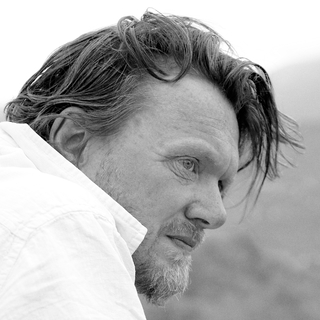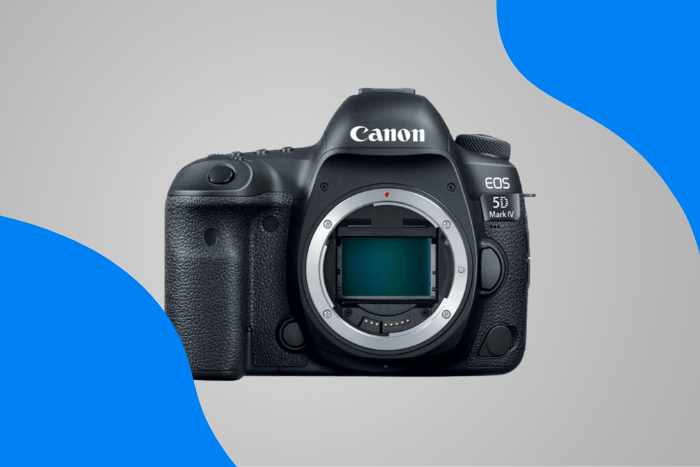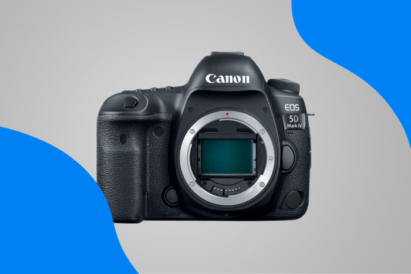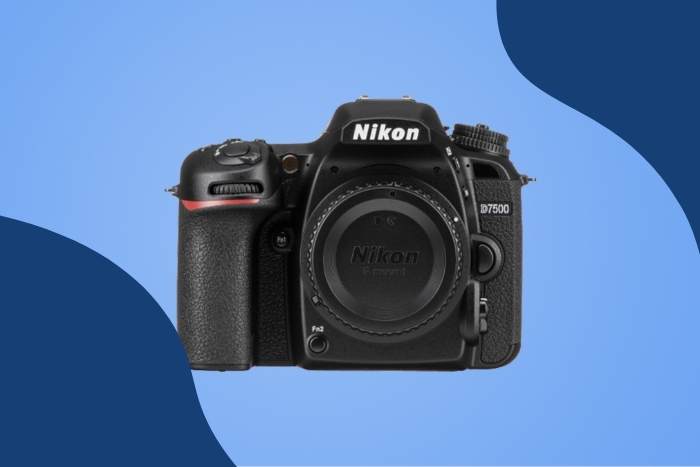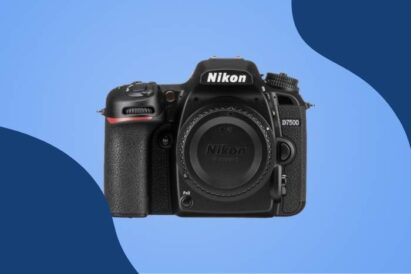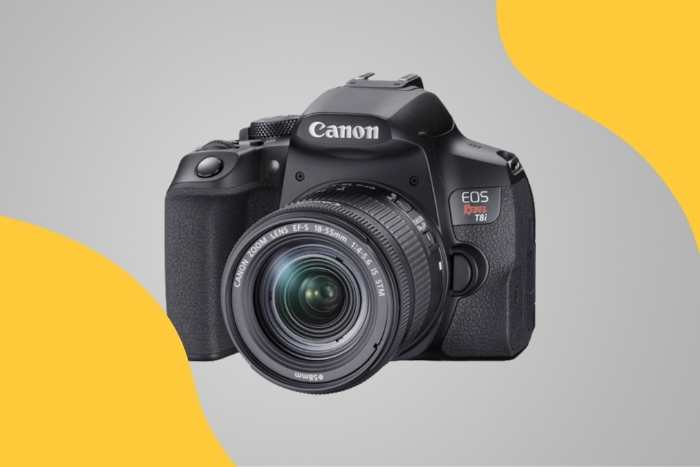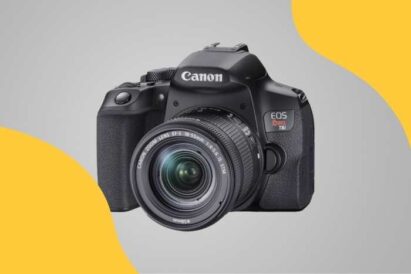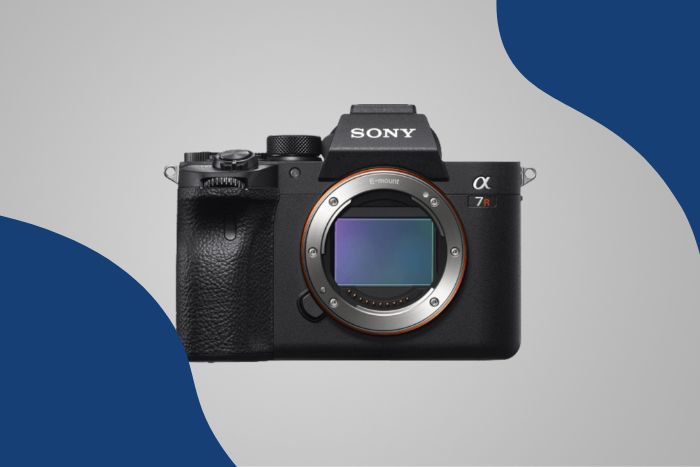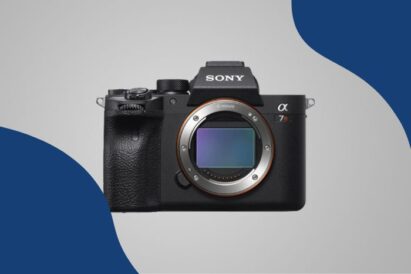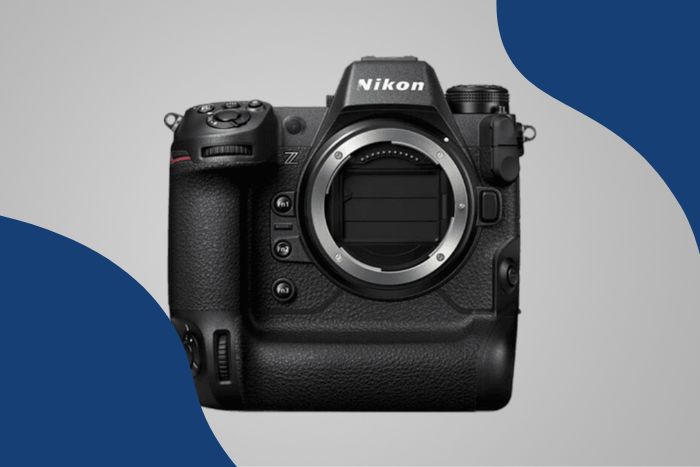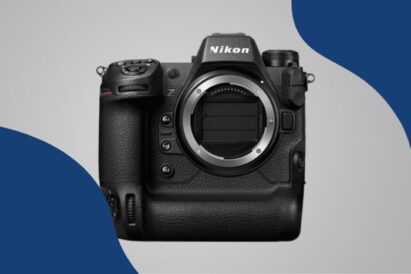I’m not going to guide you by price in this review of the ten best Canon cameras for professional photography. That’s not because I’m flush with cash. Nor are most professional photographers! But professional photography is one area where “your ship really can be spoiled for a ha’p’orth of tar.” (Which means you may not want to scrimp.)
Have you decided to take the plunge and invest in a pro-level Canon camera? Our top pick is Canon EOS 1D X Mark III. But this guide will help you navigate to the best Canon Camera specifically for you!
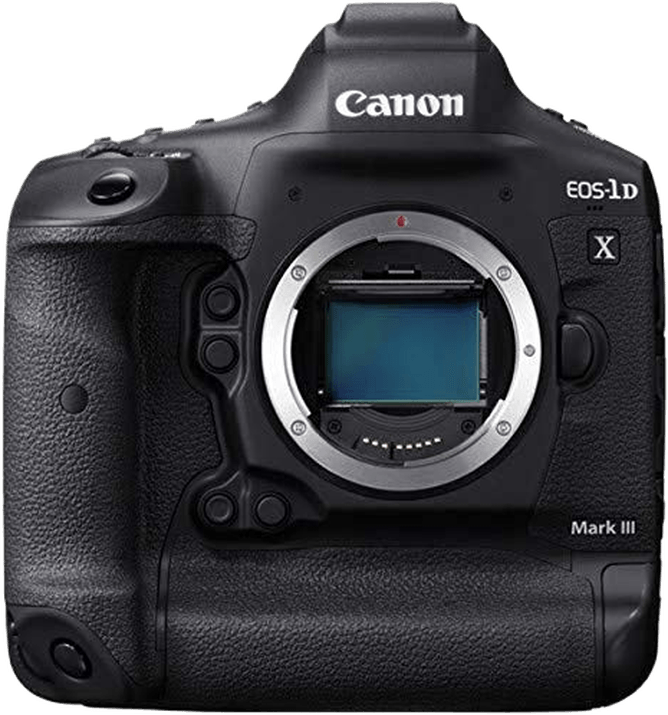
Canon EOS 1D X Mark III
I’ve been interested in photography for more than 40 years. In the early years, it seemed like Nikon was the camera of choice for press photographers of all flavors. That balance shifted with the introduction of the Canon F-1 SLR. And now, Canon is dominant in a market with many quality camera brands.
With this review, I’m going to assume two things. First, you are seriously considering buying a pro-grade Canon camera. And second, you can be persuaded even if you haven’t chosen Canon yet.
What is the Best Canon Camera for Professional Photography?
I said, in effect, money was no object. But I have made some concessions. Some of the choices here are older models that you’ll find widely available in the used market. Some are also available as “renewed” on Amazon. So here’s a quick roundup of my top picks for the best Canon cameras for professional photography.

- Dual DIGIC X processors
- Super-fast autofocus
- Bomb-proof construction
- First-rate Live View performance
- Gigabit ethernet connections
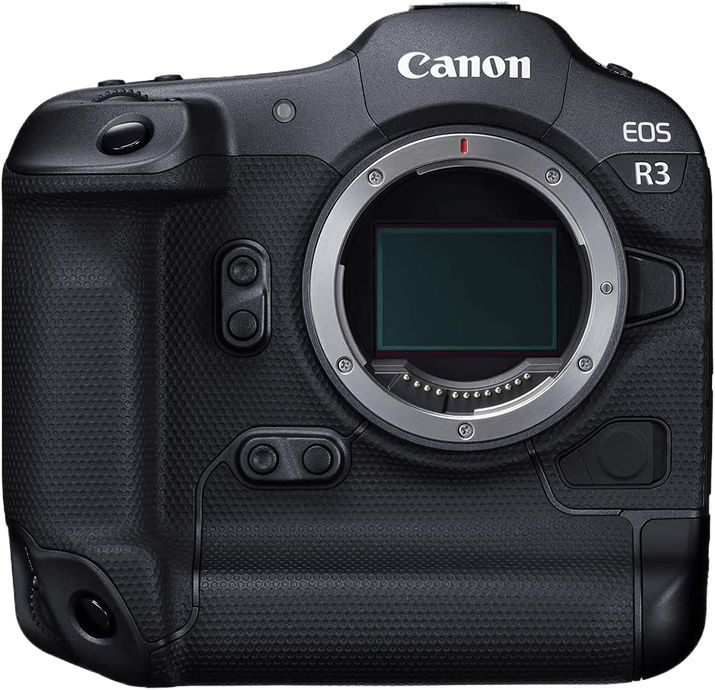
- A high frame rate of 30 fps
- Less noise with BSI stacked sensor
- 8 stops of image stabilization
- 6K / 60p RAW video
- 620-shot battery life
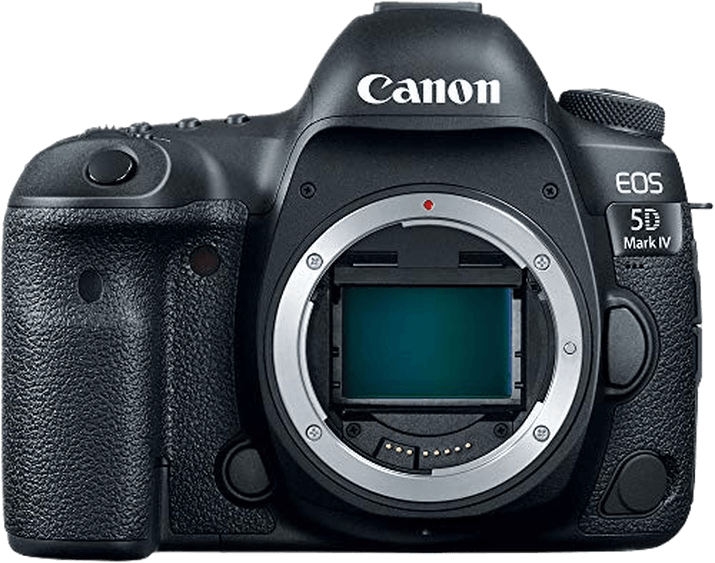
- Quality sensor produces detailed and vibrant images even at high ISOs
- Dual Pixel AF with eye detection
- User-friendly touch-to-focus screen
- 900-shot battery life
- Cinema-quality (DCI) 4K video
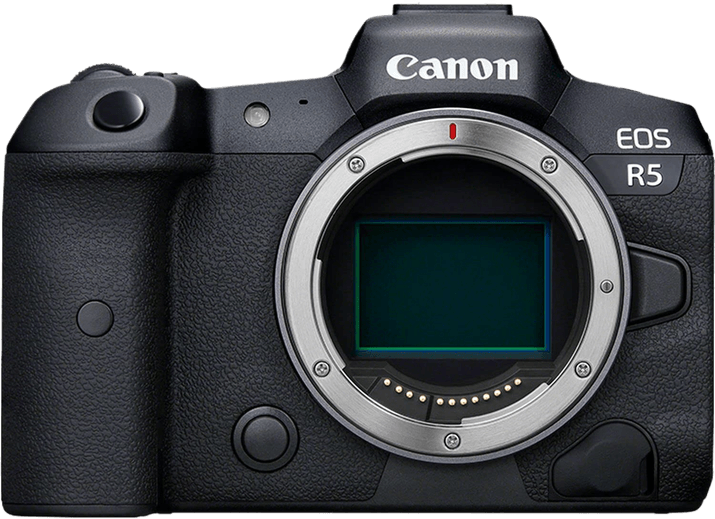
- Large 45 MP sensor
- High frame rate of 20 fps
- In-Body Image Stabilization (IBIS)
- Body, face, eye, and animal tracking
- 8K/30p Ultra HD video
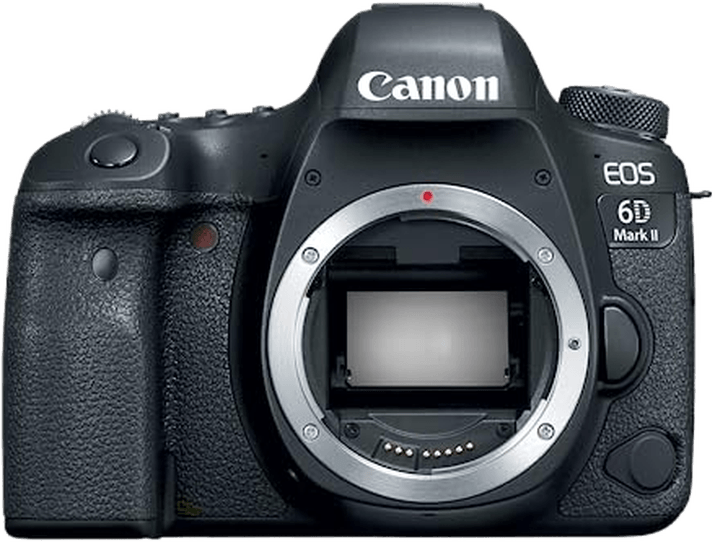
- Fantastic image quality
- Impressive 45-point AF system
- Built well and nice to handle
- Handy built-in Wi-Fi and GPS
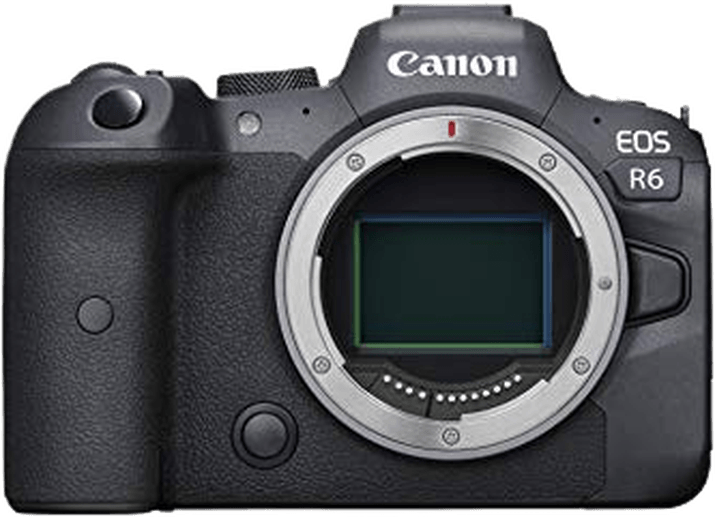
- Relatively affordable
- Excellent in-body image stabilization
- Compact and ergonomic design
- Fantastic expandable ISO range
- Rapid burst speeds
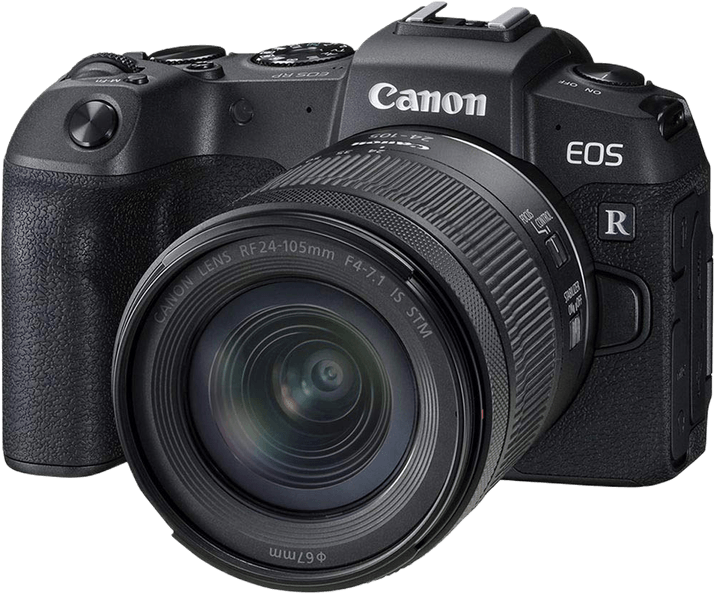
- Affordable full-frame mirrorless
- Lightweight and easy to handle
- Macro stacking and time-lapse
- Convenient Wi-Fi and Bluetooth
- Nice 4K video performance
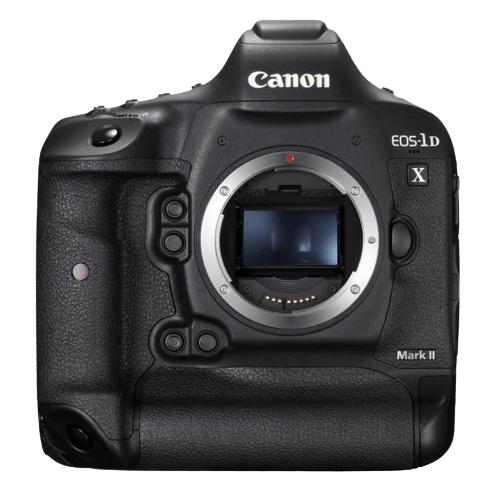
- Great value for an older pro camera
- Excellent image quality
- Solid build quality
- Great for sports photography
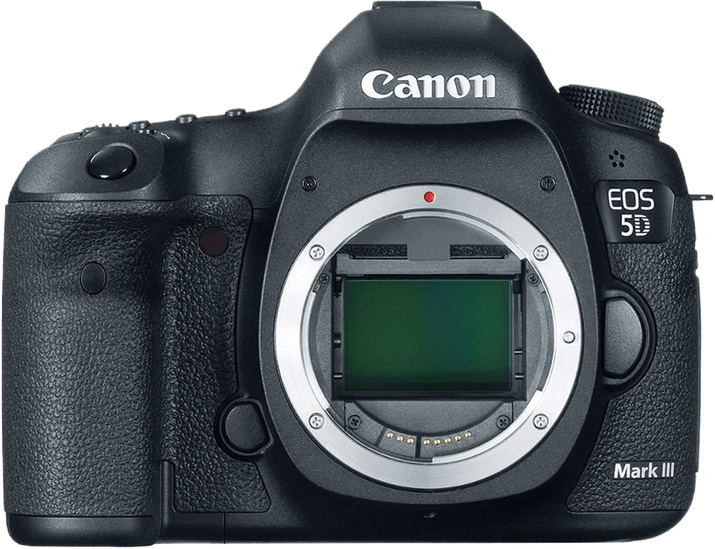
- Good value as a used pro camera
- Excellent low-light performance
- Good ergonomics
- Durable and reliable performance
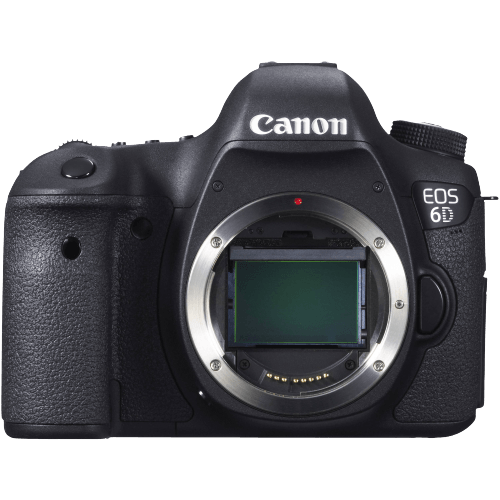
- Great price for a pro-grade camera
- Decent low-light performance
- Intuitive camera controls
- GPS and Wi-Fi connectivity
10 Best Canon Cameras for Professional Photography
I’ve researched the current best Canon cameras, both new and used. And I bring you this review of pro-level DSLRs and mirrorless cameras.
1. Canon EOS-1D X Mark III

| Camera Type |
Camera Type
|
| Megapixels |
Megapixels
20.1 MP |
| Sensor Format |
Sensor Format
|
| Sensor Size |
Sensor Size
24 x 36 mm
|
| Frame Rate |
Frame Rate
20 fps |
| Autofocus Points |
Autofocus Points
191 |
- Excellent low-light capabilities
- Dual Pixel AF and AI detection
- Fantastic buffer for continuous shots
- High frame rate for video recording
- Great battery life
- Relatively expensive
- Lower megapixel count than closest competitors
- No in-body image stabilization
- A heavy camera body
In a world where megapixels are king, you might be surprised that the greatest Canon DSLR ever made has a 20.1 MP sensor. And it costs more than $5,000. This seems ridiculous in a world where people think more pixels are better.
But you may be aware that it’s not as simple as that. The Canon EOS 1D X Mark III has more than enough pixels for most. That is unless you’re a landscape or fine art studio photographer. Or if you need to print pictures in commercial formats.
The EOS-1D X Mark III is a beast of a Canon DSLR. It weighs 1.63 lb (1.44 kg) without a lens fitted. Only someone serious about photography is going to consider something this big.
But in that body, it packs a wealth of features cherished by the hard-working pro. It has a continuous shooting speed of 16 fps (frames per second) using the optical viewfinder and 20 fps in Live View. In practice, there is no buffering. That’s because it records images to two CF cards.
It has almost unmatched Live View autofocus (AF). And it’s only slightly less impressive using the viewfinder. The autofocus system works down to a -6 Exposure Value (EV). That’s roughly the amount of light you get on a moonless, starlit night away from artificial light!
The Canon EOS-1D X Mark III is my top Canon camera pick. It has a fabulous dynamic range and ultra-fast, reliable AF. Shooting at 16 or 20 fps is fast enough for even the most demanding sports photographer. And if that wasn’t enough, it can shoot video at 5.5K, using that same autofocus system.
It’s a winner, whichever way you look at it. Overall, it’s the best Canon camera available. You can see how the 1D X Mark III matches up with the Canon R3 for extra info.
2. Canon EOS R3

| Camera Type |
Camera Type
|
| Megapixels |
Megapixels
24 MP |
| Sensor Format |
Sensor Format
|
| Sensor Size |
Sensor Size
24 x 36 mm
|
| Frame Rate |
Frame Rate
30 fps |
| Autofocus Points |
Autofocus Points
1,053 |
- A high frame rate of 30 fps
- Less noise with BSI stacked sensor
- 8 stops of image stabilization
- 6K / 60p RAW video
- 620-shot battery life
- Relatively expensive
- Low-resolution for some photographers
- No 8K video
- Slowed frame rate with an SD card or low battery
You might mistake this mirrorless camera for a 1D at first glance. It has the same permanent vertical grip body shape. Side-by-side, you can see it is slightly smaller. And at 2.2 lb (1 kg), it is only two-thirds the weight of the Canon EOS 1D X Mark III.
But the camera body shape declares the intent of the Canon EOS R3. This is a professional photographer’s Canon camera... at a premium price.
Like the 1D, it has a modest-sized sensor of only 24.1 MP. This is a back-illuminated CMOS sensor. And it goes some way to solving Canon’s long-running problems with rolling shutter. It also has the same powerful DIGIC X processor as the 1D (but only one rather than two). So the image quality is excellent.
The Canon EOS R3 boasts a very fast continuous shooting speed. (To put it mildly.) With a maximum of 50 images, you can shoot at 195 fps. More normal but still remarkable speeds are possible. These have practically no limit to the number of images you can take:
- 12 fps (mechanical shutter)
- 30 fps (electronic shutter)
But perhaps the R3’s greatest trick is the eye-controlled focus. I had a Canon EOS 50E back in the mid-90s. This had three (yes, three!) AF points. By process of witchcraft, the viewfinder detected which of the three points I was looking at. And the camera selected it as the focal point. It was way more useful than I ever expected it to be.
The EOS R3 takes it several light-years further. It has 1,050 more focus points. So there’s no need to consciously look at one point to focus. The natural focal point is the subject of your photo. And the camera sees this and chooses the nearest point.
There’s not enough room in this review to list all the positives of the Canon EOS R3. Suffice it to say it is a powerful contender as a worthy professional mirrorless camera. It is the best Canon camera in the mirrorless camera field.
Have a look at these popular R3 camera comparisons to see how it holds up:
- Canon EOS R3 vs EOS R6
- Canon EOS R3 vs EOS R5
- Canon EOS R3 vs Nikon Z9
- Canon EOS R3 vs Sony a1
- Canon EOS R3 vs Fujifilm X-T5
3. Canon EOS 5D Mark IV

| Camera Type |
Camera Type
|
| Megapixels |
Megapixels
30.4 MP |
| Sensor Format |
Sensor Format
|
| Sensor Size |
Sensor Size
24 x 36 mm
|
| Frame Rate |
Frame Rate
7 fps |
| Autofocus Points |
Autofocus Points
61 |
- Quality sensor produces detailed and vibrant images even at high ISOs
- Dual Pixel AF with eye detection
- User-friendly touch-to-focus screen
- 900-shot battery life
- Cinema-quality (DCI) 4K video
- Unreliable, imprecise subject tracking
- Limited dynamic range
- No in-body stabilization
- No bluetooth
- 64x crop factor with 4K video
This is the latest 5D from Canon. And it has proved to be just as successful and popular as its two predecessors. Like the two previous models we’ve looked at, the 5D Mark IV is sturdy and strong. It is weather-sealed and dust-sealed. This protects it from the heavy use professional photographers put it through.
It has the same Dual Pixel CMOS AF that produces fast and reliable performance. The autofocus system uses 61 focus points, 41 of which are cross points. One of the many improvements over the Mark III was the introduction of a touchscreen. This is really well-implemented, bringing smooth and intuitive controls to the functions.
The EOS 5D Mark IV is smaller than the 1D or the R3. But it is no lightweight. You might want to add a battery grip anyway. It doubles the battery capacity. And more importantly, it duplicates the important controls for vertical shooting. It’s a real bonus for shooting portraits, sports, and weddings. And for additional peace of mind, you can use it to power the camera with 6 AA batteries.
The video performance of the Canon EOS 5D Mark IV has started to look a little below-par. Compared to others that have come along, it is not class-leading. So it’s worth bearing in mind if you want to record quality video.
The EOS 5D Mark IV is a solid, reliable, and extremely capable camera for a professional photographer. It delivers reliable, impressive image quality. It’s probably the best Canon camera. It’s a more compact camera than the 1D.
4. Canon EOS R5

| Camera Type |
Camera Type
|
| Megapixels |
Megapixels
45 MP |
| Sensor Format |
Sensor Format
|
| Sensor Size |
Sensor Size
23.9 x 35.9 mm
|
| Frame Rate |
Frame Rate
20 fps |
| Autofocus Points |
Autofocus Points
1,053 |
- Large 45 MP sensor
- High frame rate of 20 fps
- In-Body Image Stabilization (IBIS)
- Body, face, eye, and animal tracking
- 8K/30p Ultra HD video
- Expensive
- Complicated autofocus setup
- Noise reduction applied to RAW files
- Hard to customize
- Overheats shooting video
The Canon EOS R5 is to the EOS R3 what the 5D Mark IV is to the 1D X Mark III. That’s to say, in the stable of mirrorless cameras, it’s one notch down from the R3. It has a weather-sealed and dust-sealed body like a professional camera body should. It is sturdy and well-made, like every proper professional camera body. Plus, it has dual card slots.
The 45 MP sensor is very generous. It provides excellent dynamic range and low-light performance. This camera also has Dual Pixel CMOS AF. It is quick and reliable. And it has effective face-tracking and eye-tracking. The tracking is so good that you might only rarely turn them off.
The Canon EOS R5 has both a mechanical shutter and an electronic one. Which you use depends on the circumstances. The mechanical gives you 12 fps, better dynamic range, and ISO permanence. The electronic shutter allows 20 fps. It greatly counters the persistent rolling shutter problem in Canon digital cameras.
Like the Canon EOS 5D Mark IV, a battery grip is available. This makes it especially attractive to action photographers. And those who do a lot of portrait photography will look at it too.
Finally, the EOS R5 has a “curate’s egg” of video performance. (Good and bad.) It offers 8K video in bursts. But it also suffers from well-documented over-heating problems when video recording in 8K. It’s probably not the best choice if regular hybrid shooting is your thing. But for all-around performance, it’s a credible professional choice.
5. Canon EOS 6D Mark II

| Camera Type |
Camera Type
|
| Megapixels |
Megapixels
20.2 MP |
| Sensor Format |
Sensor Format
|
| Sensor Size |
Sensor Size
24 x 36 mm
|
| Frame Rate |
Frame Rate
4.5 fps |
| Autofocus Points |
Autofocus Points
11 |
- Affordable full frame EOS camera
- Great low-light performance
- Good ergonomics for handling
- Light, durable magnesium alloy shell
- Convenient GPS and Wi-Fi connectivity
- Slow continuous burst shooting by modern standards
- Limited number of AF points
- No in-body image stabilization to minimize camera shake
- Only one memory card slot
I’ve awarded the Canon EOS 6D Mark II the “best entry-level” badge. All things are relative, of course. This isn’t entry-level like the Canon EOS Rebel T7 is. But it is entry-level in the world of full frame DSLRs.
It’s time to talk about articulating screens. Many professional photographers have always looked down their noses at articulating screens. A rule of thumb seems to be that an articulating screen does not equal a professional camera.
But professional photographers once never used digital cameras. So things change. More and more professional photographers must include some level of video work. And there are too many situations where an articulating screen is a real bonus. It doesn’t allow us to be universally sniffy about them!
The EOS 6D Mark II has an articulating touch screen that incorporates many useful benefits. You can touch to focus and pinch to zoom. This is all very familiar from using our smartphones.
What nudges the EOS 6D Mark II into the arena of “possible professional camera” is the combination of a full frame 26.2 CMOS sensor and Dual Pixel AF. The 6D Mark II also has 5D-level environmental sealing.
It is a very competent performer in many areas. But it lacks in a few others:
- It doesn’t have the useful joystick controller of the 5D lineup.
- It doesn’t have super-responsive touch-sensitive buttons like the R3 and R5.
- AF points are limited to 45 (but they are all cross-point types).
- Low-light AF is not the same as on more expensive Canon cameras.
- Only the center point has a half-decent rating of -3 EV.
But if the EOS 6D Mark II did everything as well as the cameras that cost twice as much (or more), we would snatch it up in seconds. Its image quality is unlikely to disappoint. And as an introduction to full frame photography, the Canon EOS 6D Mark II is a solid choice.
6. Canon EOS R6

| Camera Type |
Camera Type
|
| Megapixels |
Megapixels
20.1 MP |
| Sensor Format |
Sensor Format
|
| Sensor Size |
Sensor Size
23.9 x 35.9 mm
|
| Frame Rate |
Frame Rate
20 fps |
| Autofocus Points |
Autofocus Points
1,053 |
- Relatively affordable
- Excellent in-body image stabilization
- Compact and ergonomic design
- Fantastic expandable ISO range
- Rapid burst speeds
- Low megapixel count compared to closest competitors
- Interface is challenging to navigate
- EVF drains the battery
- Camera heats up shooting 4K / 60 fps
Some excellent things are going for the Canon EOS R6. It has the same Dual Pixel 20 MP sensor as the 1D X Mark III. The image quality is consistently good. The Dual Pixel CMOS AF gives fast and accurate focusing. In-body image stabilization (IS) works with lens IS to produce up to 8 stops improvement. And you can shoot almost full frame 4K video up to 60p.
Many people likely consider the Canon EOS R6 an enthusiast’s camera. It doesn’t quite qualify as a full-fledged professional camera. But that is probably underselling its capabilities a bit.
True, it is not up to the spec of the R5. But it has weather sealing better than consumer levels. And up to 20 fps burst shooting, and two card slots also add to its pedigree. Its autofocus performance might best eve the flagship of Canon cameras, the 1D X Mark III. Plus, it uses the same advanced DIGIC X processor.
There are some chinks in the armor. While the 4K video is impressive, there are similar overheating problems to the R5. And the burst capacity is limited by the SD-only memory card slots.
The Canon EOS R6 is a strong contender for someone looking for a great mirrorless camera for professional photography.
7. Canon EOS RP

| Camera Type |
Camera Type
|
| Megapixels |
Megapixels
26 MP |
| Sensor Format |
Sensor Format
|
| Sensor Size |
Sensor Size
24 x 35.9 mm
|
| Frame Rate |
Frame Rate
5 fps |
| Autofocus Points |
Autofocus Points
4,779 |
- Affordable full-frame mirrorless
- Lightweight and easy to handle
- Macro stacking and time-lapse
- Convenient Wi-Fi and Bluetooth
- Nice 4K video performance
- 5 fps max burst is slow compared to competitors
- Relatively poor 250-shot battery life
- Doesn't function while charging
- 4K video is cropped 1.6x
I said earlier that every professional camera body has two memory card slots. The Canon EOS RP is a bit of an interloper here. It only has one. I confess to being a bit torn. It could be nerve-wracking to go on a shoot with only one card. You can’t go back and re-shoot a wedding!
I know from experience the anxiety photographers might have from shooting film. But dual-card digital cameras and LCD screens have banished that. And it’s rare these days for memory cards to fail. It happened to me once in the last ten years, and that was only the casing. I was able to bodge a repair!
Apart from that, the Canon EOS RP has great specs. If you’re a professional photographer, you might consider buying it as a second or backup camera. It has a 26.2 MP Dual Pixel CMOS sensor. The autofocus system is reliable and has eye-detection tracking. And the autofocus system is rated down to -5 EV for impressive low-light performance.
The Canon EOS RP is slight compared to its full-on pro stable mates. But it is solidly built. Microphone and headphone sockets add to its pro credentials. Against that is its slightly under-par RAW images at high ISOs. But as an affordable entry into full frame mirrorless cameras? It’s worthy of its place on this list.
8. Canon EOS-1 D X Mark II

| Camera Type |
Camera Type
|
| Megapixels |
Megapixels
20.2 MP |
| Sensor Format |
Sensor Format
|
| Sensor Size |
Sensor Size
24 x 36 mm
|
| Frame Rate |
Frame Rate
16 fps |
| Autofocus Points |
Autofocus Points
61 |
- Solid and reliable full frame camera
- Quality Dual Pixel CMOS sensor
- Has a touchscreen with focus selection
- Fast USB 3.0 transmission connection
- Very good 4K video quality
- Limited sensor size not ideal for landscape photography
- AF tracking in Live View shows its age
- Very heavy camera body
- 4K video Motion JPEG format limits the size of the video
This is the first of three recommended cameras that newer versions have replaced. They are widely available on the used market.
The Canon EOS-1 D X Mark II was, of course, the best Canon Camera of its era. Its list of features is still pretty impressive. And you can expect to pay about half the cost of the Mark III for a preowned camera.
A 20 MP CMOS sensor is at the heart of the beast. It is powered by two DIGIC 6+ processors and has 61 selectable AF points. It has 4K video up to 60p and HD at 120p. This means it is still a seriously capable machine despite its age and bulk.
The Mark II is worth looking at if you’re looking for a solid and dependable camera with a great pedigree. It’s still a strong contender for sports and action photography.
9. Canon EOS 5D Mark III

| Camera Type |
Camera Type
|
| Megapixels |
Megapixels
22.3 MP |
| Sensor Format |
Sensor Format
|
| Sensor Size |
Sensor Size
24 x 36 mm
|
| Frame Rate |
Frame Rate
6 fps |
| Autofocus Points |
Autofocus Points
61 |
- Tried and tested, reliable camera
- Strong low-light performance
- Has a high dynamic range
- Dual slots for SD and CF cards
- Some disappointing JPEG rendering
- AF in Live View is clunky
- Fixed screen is not touch sensitive
- Video recording is time limited
One of the problems for Canon in designing the 5d Mark IV? The Mark III was just so good. Some people saw it as “enthusiast” level. But thousands of seasoned pros would tell you otherwise.
It is still a fine pro-level camera. Its magnesium alloy shell has twin slots for CF and SD cards. Environmental sealing means it survives daily rough-and-tumble professional use. The shutter count on mine currently reads northwards of 160,000 activations.
The image quality of the photos is excellent. And its low-light performance still surprises me at times. It shows its age in Live View AF, which is poor by modern standards. And autofocus for video is disappointing. But it’s a camera you can pick up for any occasion. And it delivers day after day. For this, the Canon EOS 5D Mark III is a great choice.
10. Canon EOS 6D

| Camera Type |
Camera Type
|
| Megapixels |
Megapixels
20.2 MP |
| Sensor Format |
Sensor Format
|
| Sensor Size |
Sensor Size
24 x 36 mm
|
| Frame Rate |
Frame Rate
4.5 fps |
| Autofocus Points |
Autofocus Points
11 |
- Affordable full frame EOS camera
- Great low-light performance
- Good ergonomics for handling
- Light, durable magnesium alloy shell
- Convenient GPS and Wi-Fi connectivity
- Slow continuous burst shooting by modern standards
- Limited number of AF points
- No in-body image stabilization to minimize camera shake
- Only one memory card slot
It’s nearly ten years since the release of the Canon EOS 6D. So in the fast-moving digital camera world, it’s almost a dinosaur. The 6D also fails the test that “you must have two cards.” But this Canon camera offers you a 20.2 MP CMOS sensor for not that much money.
It also adds an autofocus system that can operate down to -3 EV and a 100 to 25,600 ISO range. Some often see it as a poor person’s alternative to the 5D Mark III above. But it has some features, like GPS and Wi-Fi, that its more expensive cousin doesn’t.
Burst shooting at 4.5 fps is pretty decent. And the layout of the controls is similar to many more expensive Canon cameras. It’s a design that has stood the test of time. And Canon has honed it in response to feedback from demanding professional photographers.
You won’t get all the bells and whistles of the more expensive and the very best Canon camera in this review. But you get a great full frame Canon camera at a pretty bargain price.
Our Verdict
For the moment, I think that the DSLR still reigns in the world of professional photographers. But I don’t think this will always be the case. And in many ways, this review was a head-to-head between the two heavyweights among Canon cameras—the EOS-1D X Mark III and the EOS R3.
In a split decision, the title went to the DSLR. And part of that is the native availability of such a wide range of new and used lenses that fit the EF-mount. After all, if you’re spending over $6000 on a new camera, you might want to save some pennies on lenses.

Canon EOS 1D X Mark III
So the Canon EOS-1D X Mark III wins in our review of the best canon cameras for professional photography. But the strength of competition from Canon’s mirrorless cameras is growing by the week.
Buying Guide for the Best Canon Camera
So you’ve decided to “go professional,” at least with your equipment. Let me say there is a joy to be had in experiencing the quality and qualities of a pro-level camera. Although there might be financial pain, there are rewards. And if you’re charging people for your photography work, then you need quality, ease of use, and reliability.
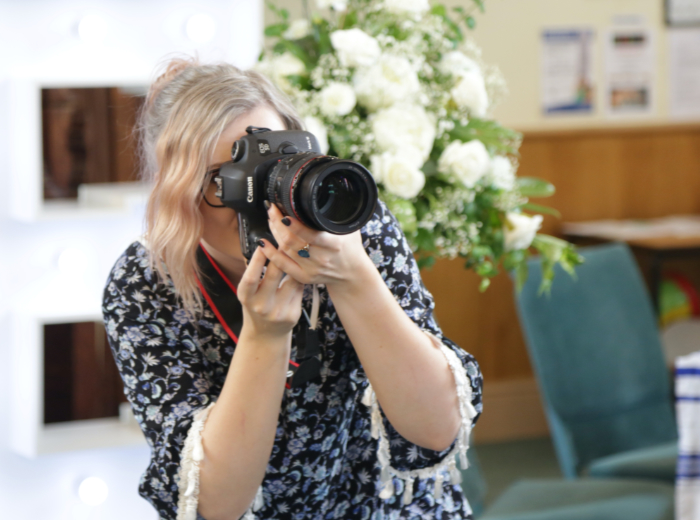
Why Buy Full Frame Cameras?
Whether a Canon DSLR or mirrorless camera, you don’t want to think about anything smaller than a full frame sensor. (No compact cameras here). There are benefits beyond raw pixel count. The pixels on a 20 MP full frame sensor can be bigger. They, therefore, receive more light than a crop sensor.
Wide-angle photography is easier to achieve with a full frame sensor. And the depth of field is narrower. Like any major manufacturer, Canon does not throw a full frame sensor into any old junk of a body. They know that only serious photographers will buy a full frame camera. Plus, they can’t afford to lose the confidence and approval of this core group of customers. They are demanding but largely loyal.
Should You Buy DSLR Cameras or Mirrorless Models?
In general, a mirrorless camera will outperform a DSLR. But what you anticipate your main areas of photography work to be will influence your choice. I suspect many professional photographers would confess they do more video work now than expected. So be realistic about your needs.
Six years ago, I asked the opinion of a friend and professional photographer, Stuart Boreham. He has 30 years of experience as a professional photographer. So what does he think about mirrorless cameras? He said, “I don’t.” Times have changed and are changing.
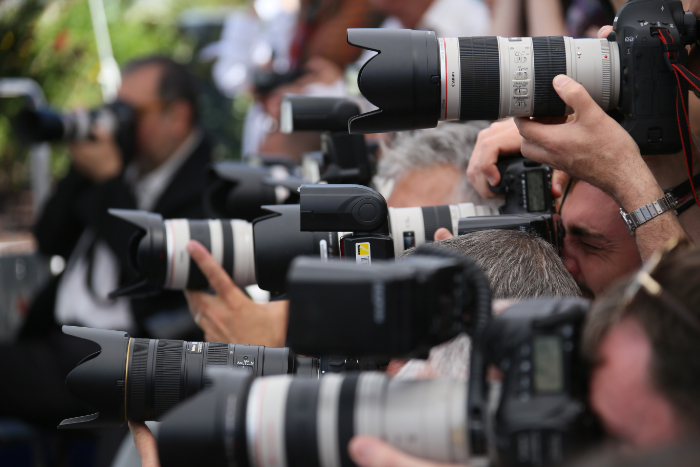
What About Compatible Lenses for Canon Cameras?
Part of the pain of buying a pro-level camera? There is no point—none at all—in putting cheap lenses on it. A fabulous sensor can only process the light that reaches it. So factor in the cost of lenses. Used lenses make more sense than used bodies. That’s because you can test for most defects before you purchase.
Conclusion
Canon is a leading producer of professional digital cameras. That’s great news because, ultimately, none of these cameras will likely disappoint you in any major way.
Our recent guide to Canon camera types may be useful to new Canon shooters. Or, if you’re still looking for your perfect camera, try our posts on the best camera for family photography or best affordable camera for landscape photography next!

